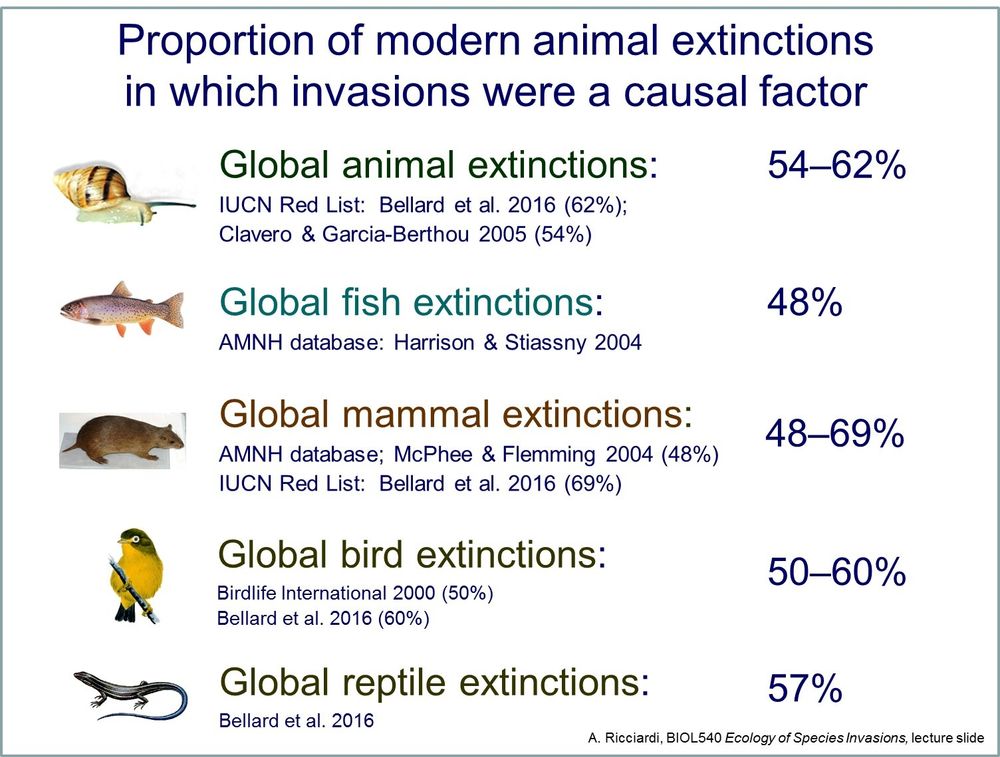Ecologist (invasive species, freshwater biodiversity, bioinvasions, aquatic ecosystems) | Professor of Biology, McGill University | Director of the Bieler School of Environment | My lab account: @ricciardilab.bsky.social
Reposted by Anthony Ricciardi
Reposted by Garry Peterson
Reposted by Ingolf Kühn, Graeme S. Cumming, Julie L. Lockwood














